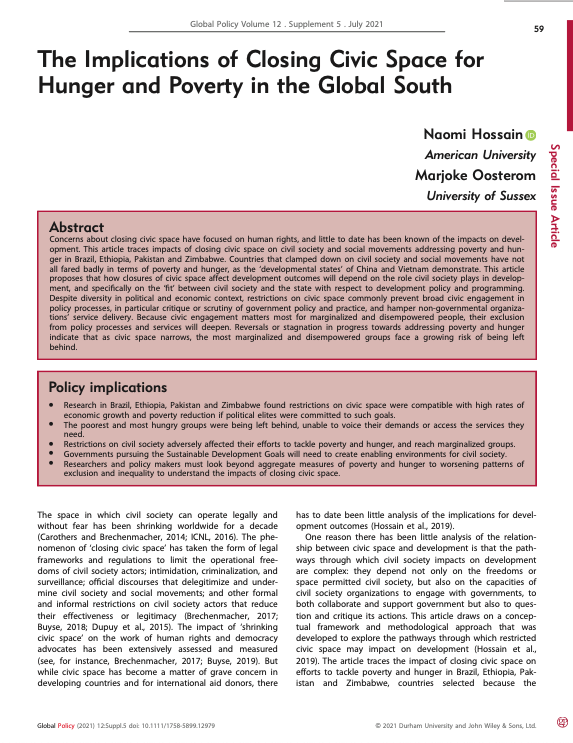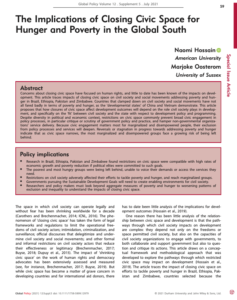
The Implications of Closing Civic Space for Hunger and Poverty in the Global South
Date: July 2021
Author(s): Naomi Hossain and Marjoke Oosterom
Publication type: Scholarly Journal Article
Published by: Global Policy
Concerns about closing civic space have focused on human rights, and little to date has been known of the impacts on development. This article traces impacts of closing civic space on civil society and social movements addressing poverty and hunger in Brazil, Ethiopia, Pakistan and Zimbabwe. Countries that clamped down on civil society and social movements have not all fared badly in terms of poverty and hunger, as the ‘developmental states’ of China and Vietnam demonstrate. This article proposes that how closures of civic space affect development outcomes will depend on the role civil society plays in development, and specifally on the ‘fit’ between civil society and the state with respect to development policy and programming. Despite diversity in political and economic context, restrictions on civic space commonly prevent broad civic engagement in policy processes, in particular critique or scrutiny of government policy and practice, and hamper non-governmental organizations’ service delivery. Because civic engagement matters most for marginalized and disempowered people, their exclusion from policy processes and services will deepen. Reversals or stagnation in progress towards addressing poverty and hunger indicate that as civic space narrows, the most marginalized and disempowered groups face a growing risk of being left behind.

Naomi Hossain is a political sociologist, who is currently a Research Professor at the Accountability Research Center in the School of International Service at American University in Washington DC. She was previously employed by BRAC Research and Evaluation Division in Bangladesh, and the Institute of Development Studies at the University of Sussex in the UK. Her research focuses on the politics of development, and she has written extensively about Bangladesh, disasters, protests, and women’s empowerment. She is the author of The Aid Lab: Understanding Bangladesh’s Unexpected Success (2017, Oxford University Press). Naomi’s work can be viewed here: https://nomhossain.com/.
